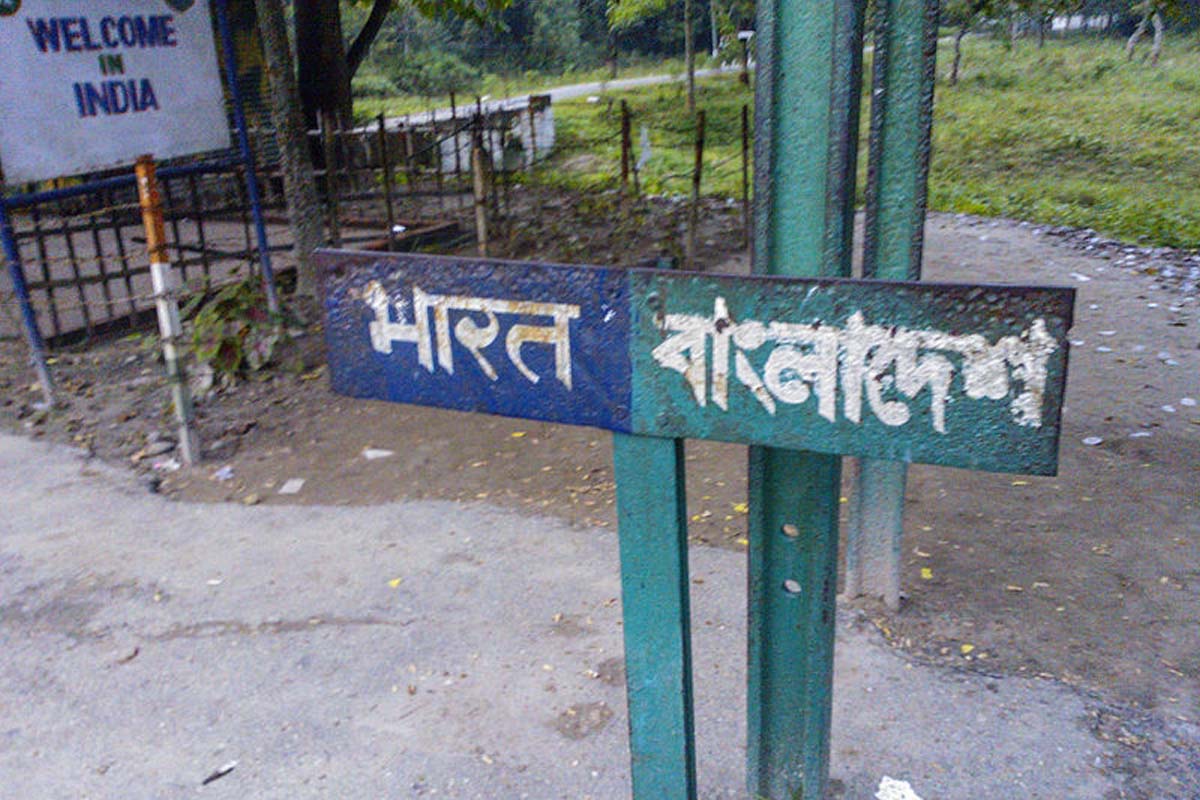Father, 4 daughters arrested for infiltration
A father and his four daughters were caught on Saturday attempting to return to Bangladesh through illegal routes. The daughters had been living in India with fake Indian identity cards.
The individuals, identified as Motiur Seikh, Mushiar Mullah, Tania Mullah, and Rita Mullah, were intercepted by the police at approximately 1:30 am at the zero point of the India-Bangladesh border.

Indo-Bangladesh border (IANS file photo)
Assam Chief Minister Himanta Biswa Sarma said on Monday that the state’s security forces successfully thwarted an attempt by four Bangladeshi nationals to illegally cross the border into India through Karimganj district.
The individuals, identified as Motiur Seikh, Mushiar Mullah, Tania Mullah, and Rita Mullah, were intercepted by the police at approximately 1:30 am at the zero point of the India-Bangladesh border.
Advertisement
In a statement posted on his X account, Sarma commended the Assam police and Border Security Force (BSF) personnel for their prompt response, emphasizing that their vigilance played a critical role in preventing the unauthorized entry.
Advertisement
He reiterated that the security forces remain on high alert 24/7, especially in light of recent developments in Bangladesh that have raised concerns about potential cross-border infiltrations.
This incident comes on the heels of another event on August 10, when a group of 10 to 15 Bangladeshi nationals reportedly attempted to forcibly enter the Indian villages of Bhogdanga and Faushkarkuti in Dhubri district.
These villages are of strategic importance, as they are nearly encircled by Bangladesh and are situated in the vulnerable “chicken neck” corridor—a narrow stretch of land connecting India’s northeastern states with the rest of the country.
The Assam Police has heightened security along the Indo-Bangladesh border, issuing a high alert to prevent any illegal crossings.
The BSF, serving as the first line of defense, works in close coordination with the Assam Police, which acts as the secondary line of defense.
Karimganj district, which shares a 110-kilometer-long border with Bangladesh, presents unique security challenges, particularly along its four-kilometer river boundary, which remains unfenced. However, the majority of the border is secured with fencing to deter illegal crossings.
The district also hosts an Integrated Check Post (ICP) in the Sutarkandi area, facilitating trade between India and Bangladesh. However, due to recent unrest and security concerns, export-import activities have been temporarily halted, impacting local businesses.
Advertisement